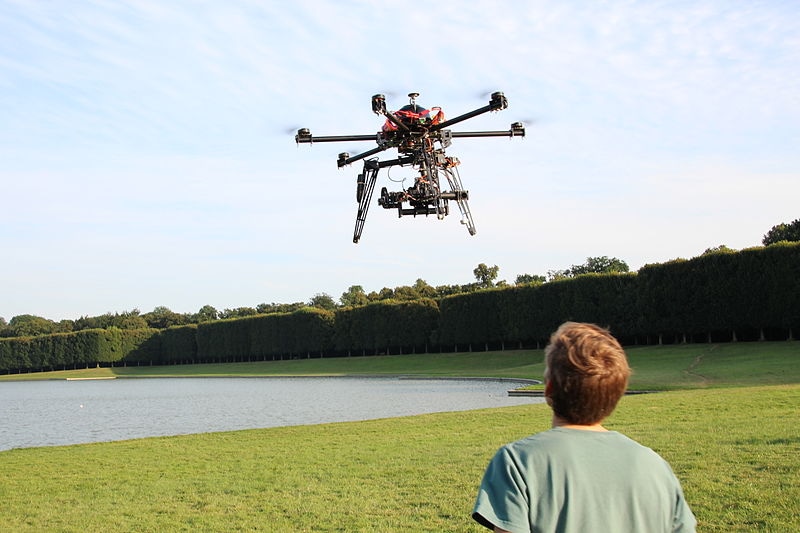Oct 16 2017
Drones may ultimately get a mind of their own.
 Amit Roy-Chowdhury hopes to make drones more intelligent. Credit: University of California, Riverside)
Amit Roy-Chowdhury hopes to make drones more intelligent. Credit: University of California, Riverside)
The University of California, Riverside will be developing artificial intelligence for drones using the $1 million grant they received from the National Science Foundation. The ultimate aim is to allow the robots to conduct extensive reconnaissance missions without direct human control.
Amit Roy-Chowdhury, Professor of Electrical and Computer Engineering, plans to develop programs that will enable the drones to act on their own, such as by zooming in on a specific object. The technology could prove very helpful for security and environmental monitoring, or for search and rescue missions.
The problem with drones is that the travel path is usually set beforehand. Our project will look into how we can let drones dynamically re-plan, depending on what data is sensed. There might be a need to get higher resolution data, like if you see a person in a remote area.
Amit Roy-Chowdhury, Professor of Electrical and Computer Engineering, University of California, Riverside
The use of drones is increasing in popularity among law enforcement officials and environmentalists alike because of the robots’ ability to reach remote areas not easily accessible to humans. A person normally sets the drone on a pre-determined path to gather data. But it is hard for humans to study the data in real-time and regulate the drones, because of the volume of data gathered or because of restricted reception.
Roy-Chowdhury and his team hope to resolve this problem by pre-programming drones with artificial intelligence that allows the robot to strategically establish what kind of images and data are vital enough to gather.
The research and experimentations will be carried out during the next two years in mountainous areas near the UC Riverside campus in Inland Southern California. Roy-Chowdhury, who leads UCR’s video computing team, is the Chief Investigator in the grant. Other Investigators include Nael Abu-Ghazaleh, Darrel Jenerette, Konstantinos Karydis, Anastasios Mourikis and Qi Zhu.